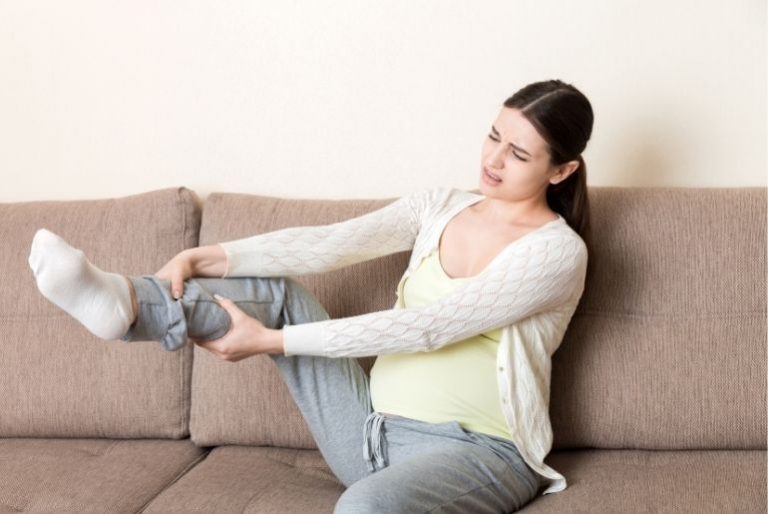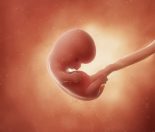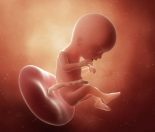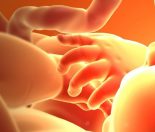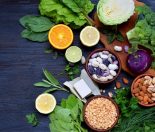In association with professional midwife experts at birthEd, find out everything you need to know about pregnancy at 19 weeks, including how your baby is growing, changes to expect in your body and pregnancy health, nutrition and wellness advice.
| Week 18 |
Week 20 |
19 Weeks Pregnant – Your baby, your body & you
Your Baby
Your baby is approximately 15cm and weighs around 220g. This is about the size and weight of a medium sized mango.

In the past it has been common practice to bathe babies within the first few hours of birth. It is now best practice to hold off bathing newborns for at least 24 hours and up to a week.
The vernix is rapidly absorbed and babies are not born dirty and so there is no need to do anything else other than gently wipe any blood or mucus from their skin with a cloth. The exception would be if there is meconium (stool) on the baby, then a bath would be acceptable.
Your Body
You may experience leg cramps throughout your pregnancy. Unfortunately they are very common and even worse still, they are often felt at night and can strike during sleep. If this happens to you, it is easier said than done, but try not to panic!
The muscles may tighten for a variety of reasons:
- changes in blood circulation during pregnancy
- the stress on your leg muscles of carrying the extra weight of pregnancy
- the pressure of the growing baby on the nerves and blood vessels that go to your legs
- an imbalance of minerals in the body such as magnesium, calcium, sodium and potassium
- The filtering system of the kidneys is not as efficient in pregnancy as normal, so can interfere with the body’s ability to get rid of extra fluid.
Here’s some self help options for reducing leg cramps during pregnancy:
- Immediately the cramp begins, massage and stretch the muscle by extending your heel and bringing your toes towards you
- Keep breathing and try and breathe through the pain
- Exercise regularly, such as a daily walk and make dietary adjustments to reduce your intake of milk, soft drinks and processed foods. Refrain from adding salt to meals as this could increase your risk of fluid retention.
- Stay well hydrated
- Gently stretch – pregnancy yoga has many benefits
- Ask someone to massage your legs upwards from foot to knee with both hands.
- You may need to take additional calcium, magnesium or extra B vitamin supplements. Talk with your LMC about this.
- Herbal: Wrap a compress of cabbage leaves around your legs, wipe but do not wash them and cool them in the fridge, wrap firmly around the legs.
- Nutritional: Increase the use of onions, garlic and parsley in your food.
- Hydrotherapy: swimming or water exercise can be pain relieving, reduce swelling and relieve cramps.
- Wear flat comfortable shoes and towards the end of pregnancy, rest with your legs up as much as possible.
- The use of a heat or ice pack applied for a few minutes, may help the muscle relax
- Mag Phos tissue salts. Mineral salts are held together in the cellular tissues of the body in a delicate balance. They are vital to the proper growth and development of the body. Tissue salts are prepared into minute quantities into a lactose tablet and are easily assimilated by the body. Mag Phos tissue salts is a safe remedy for relieving muscle cramps, spasms, twitches, restless legs etc, that many women experience during the second half of their pregnancies.
- Osteopathy, acupuncture and homoeopathy can also be helpful in relieving fluid retention and leg cramps.
For some women pregnancy is the ultimate beauty treatment. Your skin can clear up and glow beautifully, your nails grow strong and long and your hair grows amazingly and shines perfectly.
But for other women pregnancy can cause various skin changes. During pregnancy you have an increased production of melanin (the skin pigment) and this can cause pigmentation changes on your face called melasma or chloasma, more commonly known as the mask of pregnancy and can appear as dark patches on the skin.
It can also cause a dark line to appear down the middle of your belly, more common for dark haired women. This is called the linea nigra and will fade sometime after birth. While the pigmentation changes on your face should disappear with time after birth, always use sunscreen to avoid any further change when in the sun. Your areola (area around your nipple) will darken and the skin of your labia too.
You
Take pictures! If you haven’t already, start taking pictures of your growing belly. A lot of the time during pregnancy it can be difficult and it feels like the end is nowhere in sight, but before you know it, it’s all done. Take the time to snap pictures of yourself at different stages.
Some women invest in professional pregnancy photoshoots, but a picture on your phone will do just fine. Share them on social media for friends and family to see if you are so inclined, or keep them for yourself to look back on. You could create a private group or folder that can be shared with your special family and friends.
Your Relationships
In the next week or 2 you will be ready for an anatomy scan. This will be an opportunity to find out the sex of your baby. Whether you want to find out the gender or keep it a surprise, ensure that you discuss with your partner or support person what you would like to do.
This is another one of the many opportunities in pregnancy to take the time to discuss with your partner your thoughts and feelings and to also hear theirs too.
This Week’s Preparation
Book an anatomy scan
Use sunscreen
Start or continue to take pictures
Increase your water intake to stay hydrated
Increase your consumption of fruit and vegetables and cut back sugar and fat
Get out every day and exercise!
Stretch your calf muscles before going to bed
Back to 52 Weeks of pregnancy.


